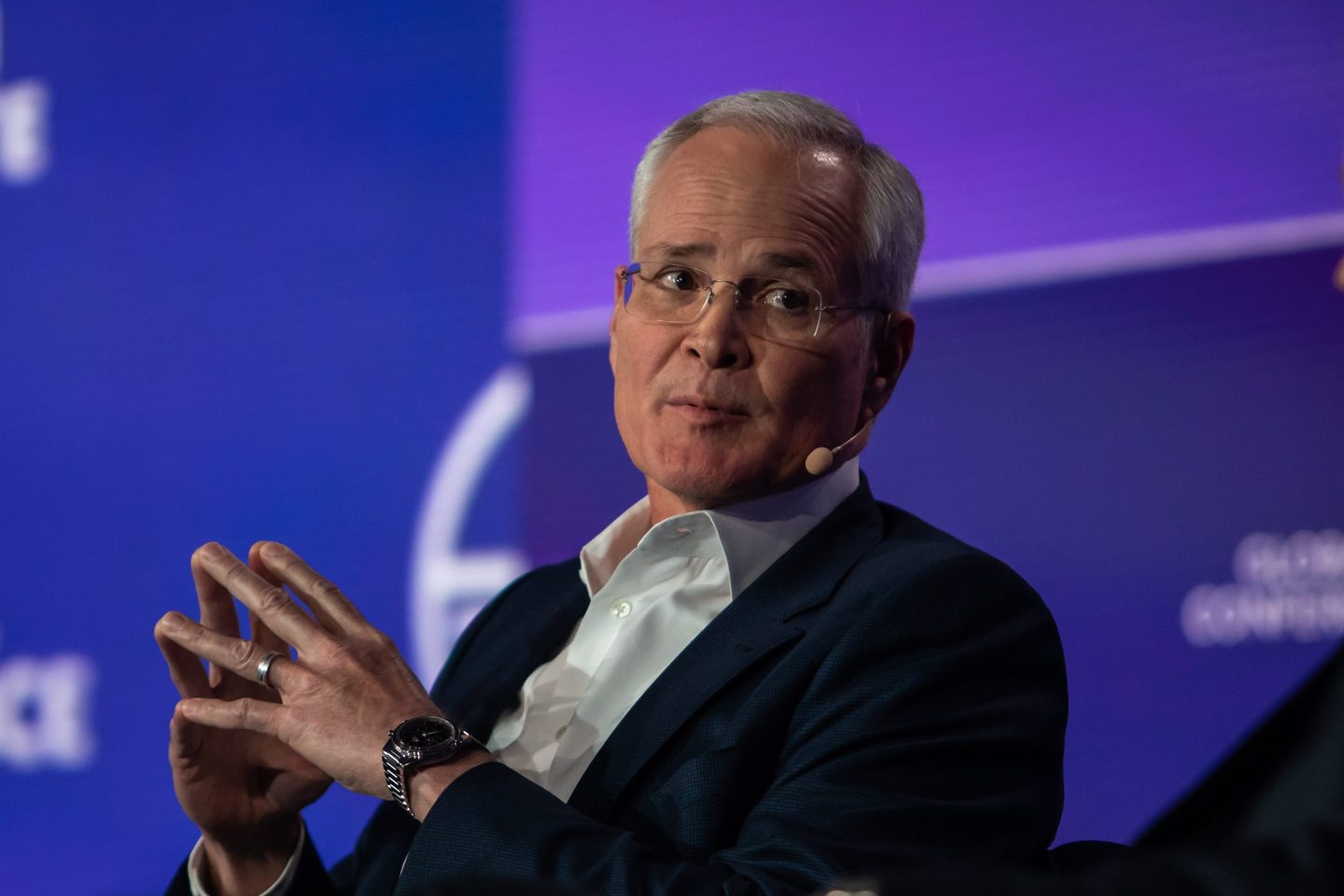Hi folks, and happy Friday! Kylie Robison from the tech team, filling in again.
Yesterday, Reuters released a damning report on automotive maker Tesla that revealed employees at the company have had access to, and shared with each other, the videos that customers’ cars record.
If you live in a big city, more likely than not you’ve passed a Tesla and triggered its “sentry mode,” which throws an Eye of Sauron on the console screen and records you for added security. According to Reuters, Tesla employees had unfettered access to those videos of you—and more. The videos ranged from the graphic, like a clip of a child getting hit by the car, which one employee said spread around employee’s private group chats “like wildfire,” to the mundane, like clips of dogs and funny street signs that Tesla workers made into memes.
In some cases, the reason for these very 1984-sounding recordings relates to Tesla’s autonomous driving capabilities—in order to condition the car to, you know, not hit people, Tesla needs to train the machine to recognize objects like cars, signs, construction vehicles, garage doors, and again, people, by having its staffers label the objects manually. Some employees told Reuters they had no ethical dilemma sharing these videos since Tesla owners had given their consent.
I use Loom and Zoom (rhyme not intended) to record videos of myself for work, and I’ve accepted the terms of those products. Would I be surprised to find people sharing videos of me checking my teeth in the camera because it was supposedly in the fine print when I signed up? Yes, indeed I would be surprised and more than a little upset. And I can’t imagine that anyone thinks they consented to be turned into a meme!
No matter how you slice it, it’s not ethical to share video clips of individuals who are probably unaware of being recorded, or if they are aware, would not expect the recordings to be used in a manner beyond what they thought they agreed to in order to use the product. The Tesla report is a reminder of how exposed we all are to such misbehavior these days given the pervasiveness of video and audio recording devices that surround us, from our phones and smart speakers to some of the fancy new cars we drive.
According to an employee who spoke to Reuters, the distribution of sensitive and personal content could lead to the intervention of the U.S. Federal Trade Commission, which is responsible for upholding federal laws related to consumer privacy.
It’ll be interesting to see how Tesla addresses this report, if at all. One thing’s for sure — I’m going to be extra careful about checking the webcam cover on my laptop.
Want to send thoughts or suggestions to Data Sheet? Drop a line here.
Kylie Robison
Data Sheet’s daily news section was written and curated by Andrea Guzman.
NEWSWORTHY
Are Twitter and Substack beefing? Writers on the popular newsletter platform Substack report that they are no longer able to embed tweets in their posts, and they suspect Twitter is to blame. According to a report in The Verge on Friday, trying to include tweets in Substack yields an error message, and Twitter users are encountering difficulties retweeting or liking new tweets with links to Substack stories. The issues come just after Substack announced its competition to Twitter, known as Notes. The publishing platform tweeted that it’s investigating and trying to resolve the issue.
Microsoft’s $3 million fine. The software giant has agreed to pay fines for allegedly violating U.S. sanctions on Russia and other countries after its tools came into the possession of blacklisted companies in the Crimea region of Ukraine. The sanctions violations happened between July 2012 to April 2019 and resulted in the sale of more than $12 million in products and services to blacklisted parties, the Wall Street Journal reports. Microsoft said that it takes export control and sanctions compliance very seriously and voluntarily disclosed the screening failures to the appropriate authorities.
Alibaba seeks to rival ChatGPT. Alibaba offered invitation codes to some corporate customers to test a large language model called “Tongyi Qianwen,” which translates roughly to “Truth from a Thousand Questions.” Since the website for the service is only in Chinese, Bloomberg reports that it could be used primarily for queries in the e-commerce giant’s home language. This comes ahead of CEO Daniel Zhang speaking at a technology summit the company is hosting next Tuesday in Beijing.
SIGNIFICANT FIGURES
5
—The number of times electric carmaker Tesla has cut prices since January. In its latest price cuts, Tesla lopped $5,000 off the price of its Model S and Model X vehicles, bringing their price tags to $84,990 and $94,990, respectively.
IN CASE YOU MISSED IT
Flexport founder Ryan Petersen reveals his secret for startup recruiting, by Kylie Robison
‘Penned’ tech specialists are earning six-figure salaries to ‘do nothing’ and string out 10-minute tasks. Some are even using the time to scuba dive, by Eleanor Pringle
Google reportedly plans to add Bard AI to its search engine, by Chris Morris
Apple’s Tim Cook shares his simple stress relief tip for running one of the biggest businesses in the world—and anyone can do it, by Eleanor Pringle
BEFORE YOU GO
Google cuts Dropcam. Google is ending support for the Dropcam and the Nest Secure home security system in April 2024. After that, users won’t be able to access it from the Nest app. Google is also closing out the last few legacy Works with Nest connections, which the Verge says could mean that a new Google Home app might arrive soon.
The Dropcam first debuted in 2012, with another version coming out a year later. With the change, Dropcam owners are eligible for a free indoor wired Nest Cam if they subscribe to Nest Aware.
This is the web version of Data Sheet, a daily newsletter on the business of tech. Sign up to get it delivered free to your inbox.













